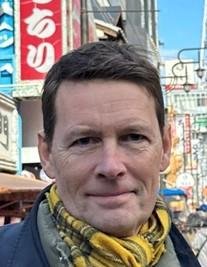Nikolaj Lübecker awarded Leverhulme Research Fellowship
During his Leverhulme Research Fellowship, Professor Lübecker will explore the idea of the universe as a cognisant, sensing system or organism: a ‘world brain’ – as H.G. Wells called it in a collection of essays from 1937. This speculative idea appears in philosophy, the sciences, and the arts; it generates both optimism and anxieties, it resonates with ancient ideas about societies and minds as anthills and beehives, and it traverses disciplines, pushing scholars towards transdisciplinary enquiries.

Nikolaj’s project – entitled The World Brain, A Cultural History – will focus on recent versions of this idea such as those developed in the fields of ecocriticism (Gaia theory, for instance) and techno-cultural studies (hiveminds, for instance). There are three main, interconnected lines of inquiry in the project:
- How is human subjectivity understood in the world brains examined? How is cognition understood? And more specifically, what do the world brains suggest about free will and individual agency?
- How is collective life conceptualised in the world brains examined? Which political structures do they facilitate? And more specifically, how can world brains avoid the dangers of imperialism and totalitarianism?
- How do the world-brain-creators conceive of the relationship between the humanities, the sciences, and art? What forms of transdisciplinarity do they practice?
Nikolaj will look for answers to these question by engaging with a heterogenous corpus of films, novels, and theoretical texts from disciplines such as systems theory, cognitive science, cybernetics, new media and art theory. The research will reference Stanisłav Lem, Hilary Harris, Henri Atlan, Lynn Margulis, Alain Resnais, Steven Soderbergh, N. Katherine Hayles, Edgar Morin, Vilém Flusser, Joanna Zylinska, and many others. These writers, artists, and thinkers illustrate both the value and the difficulties of trying to think at planetary scale – and thereby also make a strong case for the importance of transdisciplinary scholarship.
Congratulations, Nikolaj! We look forward to learning more about The World Brain in the coming academic year.